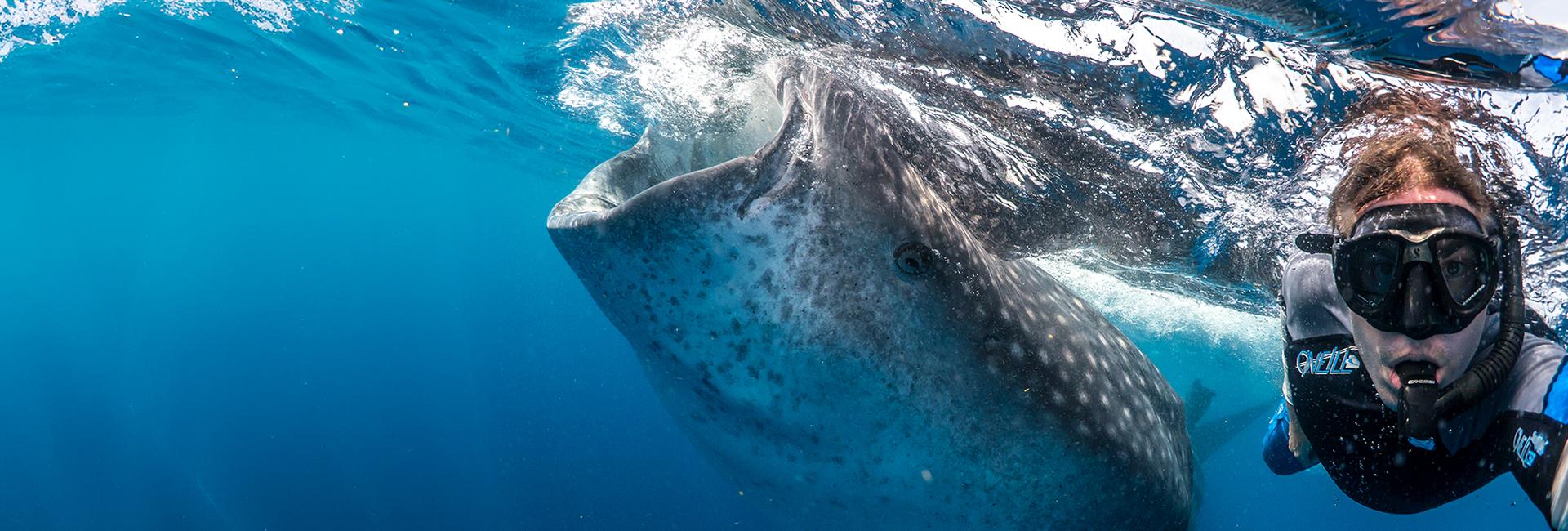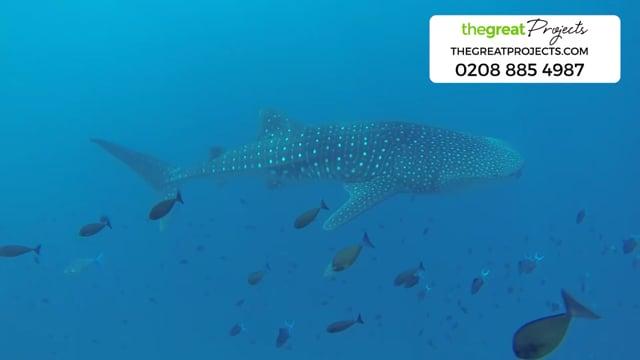
Whale Shark Conservation
Whale Shark Conservation
Renowned for being the world's largest fish, whale sharks are perhaps one of the most curious creatures in the open ocean. Growing up to forty feet (12 metres, or the size of a bus!) and weighing up to 20 tonnes with beautiful polka-dot skin, whale sharks are simply magnificent. However, you need not be intimidated by this species of shark, as they are completely harmless and docile, filter feeding on plankton, small fish and krill!
Preferring warmer waters, the Indian Ocean provides one of the best locations in which to witness this graceful giant and participate in a one-of-a-kind whale shark conservation project. Our whale shark projects offer truly unique experiences, as not only will you be able to get up close and personal with these sharks – measuring and identifying them – but you will also come to recognise them individually as you continually carry out research that will help us to better understand these elusive fish, and therefore help to devise appropriate strategies to aid whale shark conservation.
What better way to explore idyllic destinations such as the Maldives and Mafia Island than by joining a Whale Shark Conservation Project?

Projects Do More
13 - 83 Nights from $1,344.00
Join this unique whale shark internship project on the stunning Mafia Island in Tanzania.
View project13 - 83 Nights from $2,564.00
Work towards integral marine conservation in one of the most marine-rich locations on Earth.
View projectOn the Blog
Whale Shark Conservation Information
Whale Sharks At A Glance
Endangered Status
Endangered
Number remaining in the wild
Number Unknown
Endemic Region
Warm Oceans Across The World





